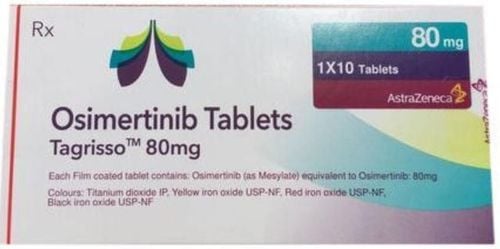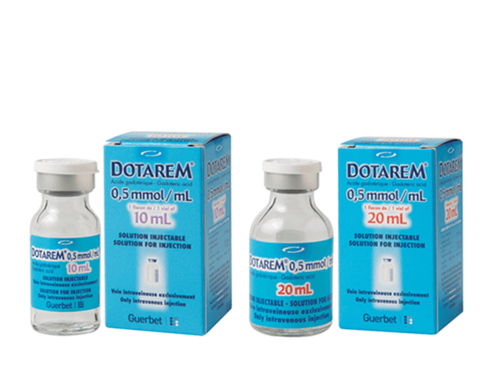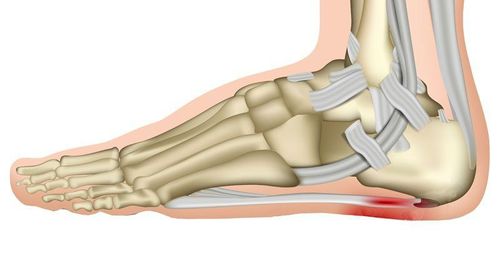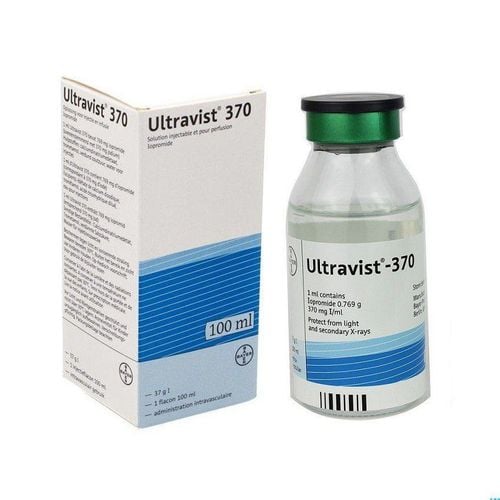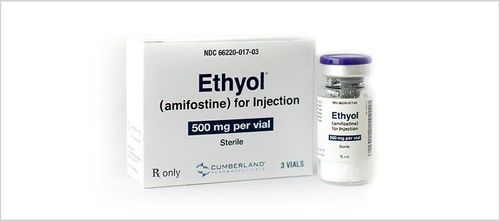This is an automatically translated article.
The article was professionally consulted by Specialist Doctor II Bui Le Phuoc Thu Thao - Radiotherapy Doctor - Oncology Center - Vinmec Central Park International General Hospital.Radiation therapy is a method of using high-energy ionizing radiation. These are electromagnetic waves (X-rays, gamma rays,...) or atomic particles (electrons, neutrons, protons, ..) to treat cancer. However, radiation can cause some adverse effects on human health.
1. Frequently asked questions about radiotherapy
There are two main methods of radiation therapy:Irradiation from the outside in This is a widely prescribed method with the following techniques: The source of radiation is placed outside the patient's body. The machine will direct the beams precisely at the damaged area (the area that needs radiation therapy) to kill cancer cells.
Brachytherapy The radiation sources (such as radium, Cesium, Iridium...) are placed close to or directly inserted into the lesion area. Some liquid radioactive isotopes such as I131, P32 can be injected directly into the body to diagnose and treat cancer cells.
2. Is radiation therapy toxic?
Radiation can cause a number of adverse effects on human health. Therefore, during treatment, you may experience unwanted effects of the following:2.1 Early reactions of radiation therapy A few days after radiation therapy, the patient may feel tired, anorexia, sometimes feel dizzy, sad. vomit. The signs will fade away as the body adapts to the radiation. Therefore, in the initial period of radiation therapy, patients must be rested and well nourished.
Skin and mucosal reactions: Depends on radiation dose. In the early stages, the skin is red and inflamed, when the dose is increased, the skin will be dry and flaky, and the mucosa will be inflamed.
Limitations: keep the skin and mucous membranes clean, do not hurt the skin because it will be difficult to heal the scar. Gently apply a layer of moisturizer to the irradiated skin. Avoid the sun and heat during irradiation, if you need to go out, apply a thick layer of sunscreen before going out.
Diarrhea: Occurs when radiation to the abdomen
Restrictive measures: use a mild course of antibiotics and drugs to tighten the intestinal lining.
Genitourinary tract inflammation: Occurs when irradiation to the pelvic area.
Treatment: broad-spectrum antibiotics and plenty of water, good genital hygiene.
Blood system and hematopoietic organs: If the radiotherapy area is directed to the hematopoietic bone marrow (eg, wide projection into the pelvis), it may affect hematopoiesis, causing leukopenia and erythrocytosis. Usually white blood cells are affected first. This condition can be worse if the patient has a combination of chemotherapy and radiation.
In some cases of severe leukopenia, it is necessary to stop radiation, improve health, use drugs to stimulate white blood cells and red blood cells.
Hematopoietic organs are very vulnerable, so when irradiated, they need to be shielded and protected (spleen, spinal cord and bone marrow...).
2.2 Late reactions and complications Soft tissue irradiation will cause fibrosis and atrophy, including glands. High-dose irradiation causes damage to blood vessels, greatly affecting surgery if radiation therapy is required. Excessively high radiation doses cause damage to organs: some organs are difficult to recover when irradiated and affect functions such as eyes, larynx, spinal cord, ovaries and testes.

Người bệnh có thể bị tiêu chảy nếu xạ trị vùng bụng
3. Does radiation therapy for cancer need isolation?
Radiation therapy uses machines that emit X-rays or gamma rays to the tumor or tumor area such as people with lung cancer, breast cancer will be irradiated to the chest, brain cancer will be irradiated to the head, stomach cancer. Colorectal thickening will shine on the abdomen... These rays only hurt the projected areas and do not affect everyone around. Therefore, everyone is completely safe and does not need to be isolated from people undergoing radiation therapy.However, if the patient is prescribed brachytherapy or radioisotopes in oral form, the following safety measures must be followed.
For relatives:
Pregnant women or children under 18 years old do not come into contact with the patient Keep a distance of at least 2 meters (6 feet) Limit visits to the patient, contact time is less than 30 minutes per day day. For patients:
Wash hands after using the toilet Use separate toiletries Drink plenty of water to remove radiation from the body Avoid sex Limit contact with infants and children and pregnant women.
4. Does radiation therapy cause hair loss?

Xạ trị có làm rụng tóc không?
Why does radiation therapy cause hair loss? Radiation therapy not only destroys cancer cells in the body, but also affects other healthy cells. Radiation-sensitive cells are fast-growing cells (eg, hair) How long does radiation-induced hair loss last? Unlike chemical hair loss, which is usually temporary, hair loss from radiation therapy can be temporary or permanent. Low radiation doses often cause temporary hair loss. At high radiation doses, hair loss may not be reversible. As hair recovers, there may be some changes compared to before radiation therapy: often frizz, may change color (uncommon).
Some measures can be taken to limit hair loss and the effects of hair loss due to radiation therapy:
If you have long hair, cutting it short before radiation therapy will reduce the extent of hair loss when it is occurs Some patients find it easier to cope with hair loss by shaving their heads before hair loss occurs Protect their heads with UV blocking hats (not just in summer), especially in men Use pH-balanced shampoo and soft-bristled brush Do not use hair dryers, curling irons because they can damage the hair, leading to more severe hair loss Do not dye your hair Radiotherapy for cancer treatment is a method used as a method of treatment. common application in medicine. Currently, Vinmec Central Park International General Hospital has successfully applied this method to treat many cancer cases, helping to reduce clinical symptoms and limit cancer metastasis.
Oncology Department at Vinmec Central Park is fully equipped with cancer treatment modalities: From surgery, radiation therapy, chemotherapy, radiation surgery .... pain treatment and palliative care. The diagnosis is made carefully: blood test, X-ray, ultrasound, magnetic resonance imaging, myelogram, myelogram, biopsy, immunohistochemistry, biological diagnosis molecule.
The treatment process is closely coordinated with many specialties: Center for Diagnostic Imaging, Laboratory Testing, Cardiology, Department of Obstetrics and Gynecology, Department of Endocrinology, Department of Rehabilitation, Department of Psychology, Department of Medicine. Nutrition, Pain Treatment and Palliative Care Department, in order to bring patients the optimal treatment regimen and the most reasonable cost.
Specialist II Bui Le Phuoc Thu Thao has nearly 15 years of experience in direct treatment of cancer patients, especially radiation oncology and care for terminal cancer patients, palliative care mild and pain-relieving. Dr. Thao has participated in many advanced training courses at home and abroad such as advanced radiation therapy in Singapore and Korea, and the National Palliative Care Instructor training course of Harvard University. Currently, Dr. Thao is working at the Center for Cancer - Radiation Therapy, Vinmec Central Park International General Hospital.
Customers can go directly to Vinmec Central Park to visit or contact hotline 0283 6221 166, 0283 6221 188 for support





